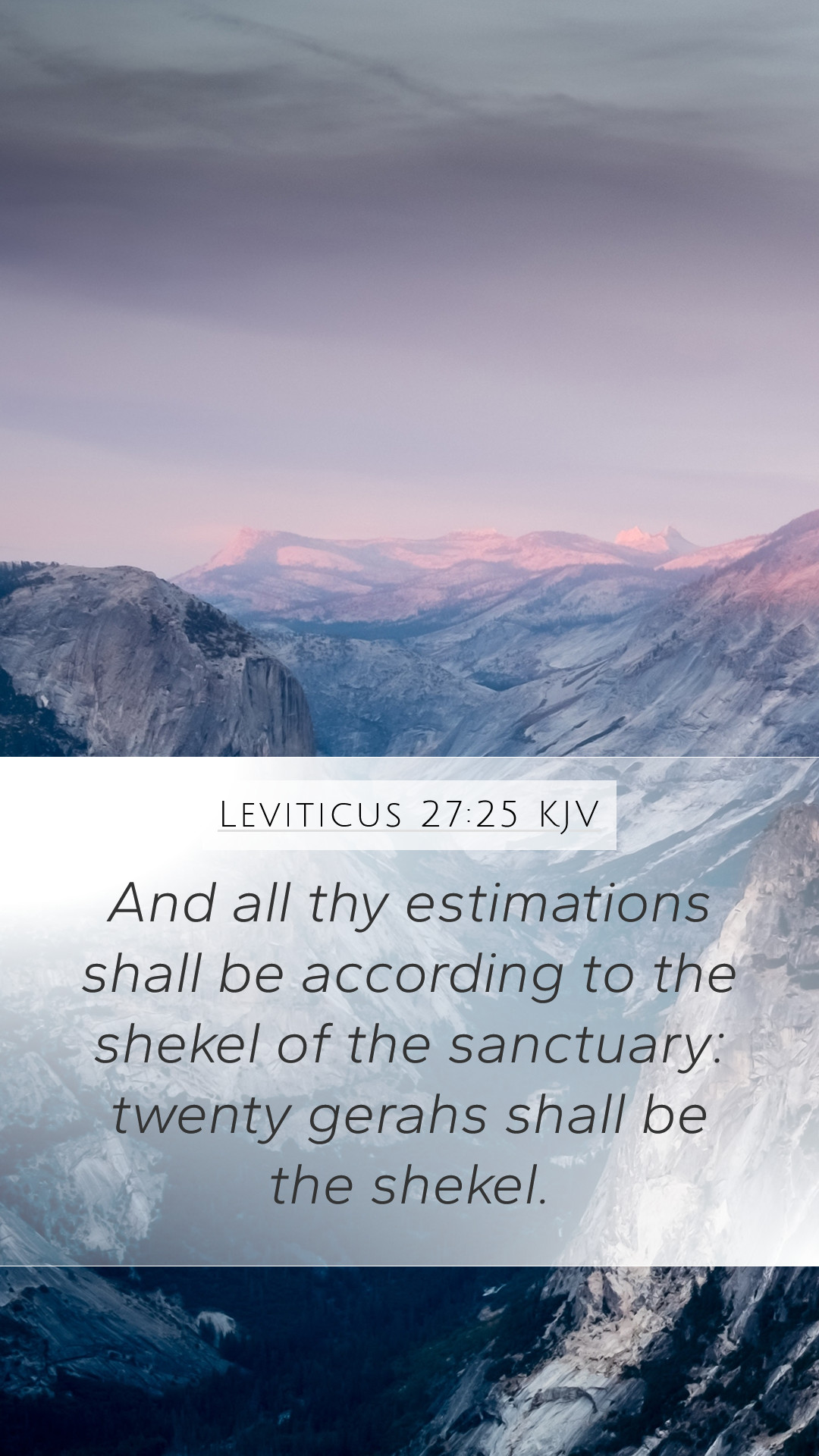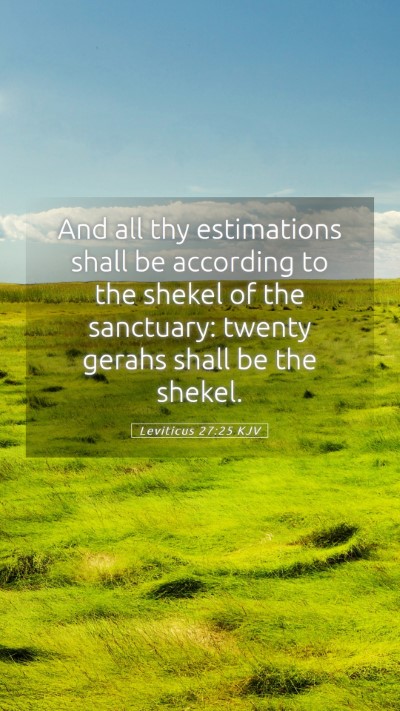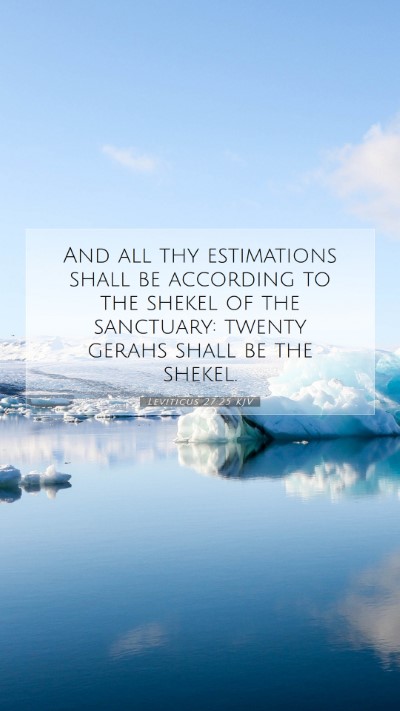Meaning of Leviticus 27:25
Leviticus 27:25 states: "And every value shall be according to the shekel of the sanctuary: twenty gerahs shall be the shekel." This verse occurs in a section discussing the valuation of people and items dedicated to God. In this commentary, we will explore the interpretations and meanings behind this passage through the insights provided by renowned public domain commentaries, including those by Matthew Henry, Albert Barnes, and Adam Clarke.
Bible Verse Commentary
Historical Context
The laws in Leviticus were given to the Israelites while they were still in the wilderness, setting the framework for worship, consecration, and duties related to the tabernacle. The significance of monetary valuations in the Hebrew culture reflects a system where everything belonged to God, and any item or person consecrated to Him must be given a value in accordance with sacred measures.
Albert Barnes highlights that this valuation system serves both practical and spiritual purposes. It emphasizes the seriousness of dedicating to God and helps ensure that attachments to material things do not supersede devotion to God.
Valuation and Community Responsibility
Matthew Henry notes that the valuation mentioned in this verse indicates communal responsibility in honoring God with one's possessions and relationships. The 'shekel of the sanctuary' emphasizes the sacred, suggesting that all valuations must consider the holiness of God.
This reflects a broader principle in Scripture: everything we possess is ultimately God’s—our responsibility is merely to manage and dedicate it back to Him with proper reverence.
Biblical Exegesis and Analysis
The phrase "according to the shekel of the sanctuary" signifies a standard measurement established for all valuations in the worship context of Israel. Adam Clarke elaborates that the 'shekel' signifies both a unit of currency and a measure of holiness, ripe with implications for human conduct and attitudes toward resources.
Explanatory Insights
- Emphasis on Holiness: The measure reflects a divine standard, suggesting that everything offered to God must align with His nature—pure and separate from secular use.
- Personal Dedication: The verse calls for individuals to consider the worth of their life changes and dedications materially and spiritually.
- Community Ethics: It fosters a communal understanding that valuing individuals and items help maintain ethical behaviors when interacting within society.
Application of the Verse
Understanding Leviticus 27:25 helps us grapple with the importance of valuing our lives and possessions in relation to our faith commitments. Indeed, as believers today study this verse, they may ask themselves how well their resources reflect their devotion to God.
Practical Reflections:
- How do we dedicate our resources: time, money, skills, to further God's kingdom?
- What does it mean to value human life and contributions within our communities?
- In what ways can we ensure our personal valuations align with God’s standards?
Cross References
Leviticus 27:25 relates to several other passages in the Bible:
- Exodus 30:13 - The shekel as a temple currency.
- Matthew 5:23-24 - The importance of reconciling relationships before offerings.
- 1 Corinthians 6:20 - We are bought at a price and are to glorify God with our bodies.
Conclusion
In summary, Leviticus 27:25 encapsulates profound themes of dedication, value, and holiness. Through understanding and interpreting these biblical verses, we can derive valuable insights about our relationships with God and material possessions. The standards established in this verse challenge us to engage with our resources and responsibilities in ways that reflect our commitment to God—ultimately, they enhance our overall understanding of Scripture and encourage deeper study in Bible study groups and personal devotions.


